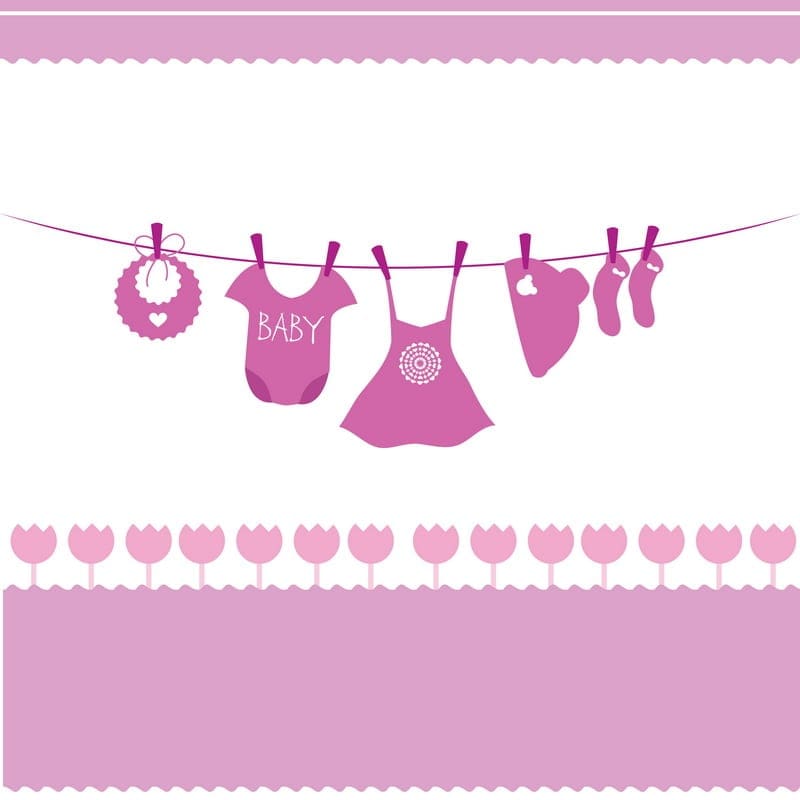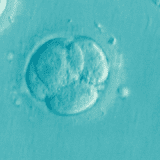Pregnancy is a beautiful and transformative time in a woman’s life, but it can also come with its fair share of challenges. For women who suffer from allergies, managing symptoms during pregnancy becomes even more crucial. This article aims to provide valuable insights on how to safely manage allergy symptoms while pregnant, as well as highlight the potential risks and considerations that pregnant women with allergies should be aware of.
When it comes to managing allergies during pregnancy, the safety of both the mother and the baby is of utmost importance. It is essential to find effective ways to alleviate symptoms without putting their health at risk. This means being cautious about the medications and treatments used, as some may have adverse effects on the developing fetus.
Seeking guidance from a healthcare provider is crucial in determining the best course of action for managing allergies during pregnancy. They can provide personalized recommendations based on the individual’s health and medical history. It is important to discuss any existing allergies or potential triggers with the healthcare provider to ensure a safe and healthy pregnancy journey.
In addition to medical advice, there are also natural remedies and lifestyle changes that can offer relief from allergy symptoms without the use of medication. These alternative options include nasal rinses, saline sprays, and steam inhalation to clear nasal passages. Creating an allergy-friendly environment at home by minimizing exposure to common allergens such as dust mites, pet dander, and pollen can also help alleviate symptoms.
Furthermore, pregnant women should be aware of the potential risks associated with certain allergy medications. While some over-the-counter antihistamines are generally considered safe during pregnancy, it is crucial to consult with a healthcare provider before starting any new medication. They can provide guidance on the appropriate dosage and the potential risks and benefits associated with specific medications.
Overall, managing allergy symptoms during pregnancy requires a delicate balance between finding relief and ensuring the safety of both the mother and the baby. By seeking medical advice, exploring natural remedies, and taking necessary precautions, pregnant women with allergies can navigate this beautiful journey with greater comfort and peace of mind.
Common Allergies During Pregnancy
During pregnancy, many women may experience allergies that they have never had before or notice an increase in the severity of their existing allergies. It is important for pregnant women to be aware of these common allergies and understand how they can impact both their own health and the health of their baby.
One of the most common allergies experienced by pregnant women is hay fever, also known as allergic rhinitis. This is characterized by symptoms such as sneezing, a runny or stuffy nose, and itchy or watery eyes. Hay fever is often triggered by outdoor allergens such as pollen, grass, and mold spores.
Another common allergy during pregnancy is asthma, a chronic condition that causes inflammation and narrowing of the airways. Pregnant women with asthma may experience shortness of breath, coughing, wheezing, and chest tightness. It is important for pregnant women with asthma to manage their symptoms properly to ensure the health and well-being of both themselves and their baby.
Food allergies can also be a concern during pregnancy. Certain foods, such as peanuts, tree nuts, shellfish, and eggs, are known to be common allergens. If a pregnant woman is allergic to any of these foods, it is important for her to avoid them to prevent allergic reactions. Additionally, some pregnant women may develop new food allergies during pregnancy, so it is important to be vigilant and seek medical advice if any symptoms arise.
It is worth noting that allergies can have an impact on both the mother and the baby. Severe allergies or allergic reactions can lead to complications during pregnancy, such as preterm labor or low birth weight. It is therefore crucial for pregnant women to manage their allergies safely and seek medical advice if needed.
Medication Safety and Allergies
When it comes to managing allergies during pregnancy, it’s important to be cautious about the medications you take. While some allergy medications are considered safe for use during pregnancy, others may pose potential risks to both the mother and the baby. It’s crucial to find a balance between effectively managing allergy symptoms and ensuring the safety of the pregnancy.
Consulting with a healthcare provider is the first step in determining which allergy medications are safe for use during pregnancy. They can provide personalized recommendations based on your individual health and medical history. It’s important to avoid self-medication and always seek professional advice.
In general, certain over-the-counter antihistamines are considered safe for use during pregnancy. These medications can help alleviate common allergy symptoms such as sneezing, itching, and nasal congestion. However, it’s important to choose antihistamines that do not cause drowsiness, as excessive drowsiness can affect your daily activities and potentially pose risks.
It’s also important to avoid certain types of allergy medications during pregnancy. Decongestants, for example, should be avoided as they can constrict blood vessels and potentially affect blood flow to the placenta. Additionally, corticosteroid nasal sprays should be used with caution and only under the guidance of a healthcare provider.
It’s worth noting that natural remedies and lifestyle changes can also provide relief from allergy symptoms during pregnancy. Nasal saline rinses, for example, can help alleviate nasal congestion and reduce the need for medication. Creating an allergy-friendly environment at home by minimizing exposure to common allergens can also help reduce symptoms.
Remember, always consult with your healthcare provider before starting any allergy treatment during pregnancy. They can guide you in making informed decisions that prioritize the health and safety of both you and your baby.
Natural Remedies for Allergy Relief
Natural remedies can be a safe and effective way to manage allergy symptoms during pregnancy. These alternative options can provide relief without the need for medication, which is especially important for pregnant women who want to avoid any potential risks to their baby’s health. Here are some natural remedies and lifestyle changes that can help alleviate allergy symptoms:
- Saline nasal irrigation: Using a saline solution to rinse the nasal passages can help clear out allergens and reduce congestion. This can be done using a neti pot or a nasal spray.
- Steam inhalation: Breathing in steam from a hot shower or a bowl of hot water can help soothe irritated nasal passages and relieve congestion.
- Quercetin-rich foods: Quercetin is a natural antihistamine found in certain foods, such as apples, onions, and berries. Including these foods in your diet may help reduce allergy symptoms.
- Probiotics: Taking probiotic supplements or consuming probiotic-rich foods, like yogurt and fermented vegetables, can help support a healthy immune system and reduce the severity of allergic reactions.
- Avoiding allergens: Identifying and avoiding allergens that trigger your symptoms is crucial. This may involve staying indoors during high pollen counts, using dust mite covers on bedding, and keeping pets out of the bedroom.
- Regular exercise: Engaging in regular physical activity can help boost your immune system and reduce the frequency and severity of allergy symptoms.
- Stress management: Stress can worsen allergy symptoms, so finding ways to manage stress, such as through relaxation techniques or mindfulness practices, can be beneficial.
It’s important to note that while natural remedies can be helpful, they may not completely eliminate all allergy symptoms. If your symptoms are severe or persistent, it’s best to consult with your healthcare provider for further guidance. They can provide personalized recommendations based on your individual health and medical history. Remember, always prioritize the safety of both you and your baby when managing allergies during pregnancy.
Allergy Triggers to Avoid
Pregnancy is a time when women may experience heightened sensitivity to certain allergens, which can trigger uncomfortable symptoms. It is important for expectant mothers to be aware of common allergens and take steps to minimize exposure to reduce the risk of allergic reactions. By avoiding these triggers, pregnant women can better manage their allergies and ensure a safer and more comfortable pregnancy.
Common allergens that can trigger symptoms during pregnancy include:
- Pollen: Pollen from trees, grasses, and weeds can cause allergic reactions such as sneezing, itching, and congestion. It is advisable for pregnant women to stay indoors on high pollen count days or wear a mask when going outside.
- Dust mites: These tiny creatures thrive in warm and humid environments, such as bedding, carpets, and upholstery. To reduce exposure, pregnant women should regularly clean and vacuum their living spaces, use dust mite-proof covers on mattresses and pillows, and wash bedding in hot water.
- Pet dander: The proteins found in pet dander can trigger allergies in susceptible individuals. If a pregnant woman is allergic to pet dander, it is recommended to avoid close contact with pets, keep them out of the bedroom, and regularly groom and clean them.
- Mold: Mold spores can be found in damp areas such as bathrooms, basements, and kitchens. Pregnant women should ensure proper ventilation in these areas, fix any leaks or water damage, and use mold-resistant products to prevent mold growth.
- Certain foods: Some pregnant women may experience food allergies or sensitivities during pregnancy. Common allergenic foods include peanuts, tree nuts, shellfish, and eggs. It is important to identify and avoid these trigger foods to prevent allergic reactions.
Minimizing exposure to these allergens can significantly reduce the risk of allergic reactions during pregnancy. However, it is important to note that individual allergens may vary, and consulting with a healthcare provider is essential for personalized advice and guidance.
Consulting with a Healthcare Provider
Consulting with a healthcare provider is crucial for pregnant women with allergies. Before starting any allergy treatment during pregnancy, it is important to seek medical advice from a healthcare provider. They can provide personalized recommendations based on the individual’s health and medical history.
A healthcare provider will be able to assess the severity of the allergies and determine the safest and most effective treatment options. They can also evaluate any potential risks and benefits associated with different treatments. This is especially important during pregnancy, as certain medications and treatments may pose risks to both the mother and the baby.
During a consultation, the healthcare provider may perform allergy tests to identify specific allergens that trigger the symptoms. This information can help guide the treatment plan and avoid unnecessary exposure to allergens. They may also recommend lifestyle changes and natural remedies as alternatives to medication, depending on the severity of the allergies.
It is important to be open and honest with the healthcare provider about any symptoms, concerns, or previous treatments. This will allow them to provide the most accurate and tailored advice. They may also refer pregnant women to allergists or other specialists for further evaluation and treatment.
Overall, consulting with a healthcare provider is essential for pregnant women with allergies to ensure the safety and well-being of both the mother and the baby. Their expertise and personalized recommendations can help manage allergy symptoms effectively while minimizing any potential risks.
Allergy Shots and Immunotherapy
Allergy shots and immunotherapy are potential treatment options for pregnant women with severe allergies. These treatments aim to desensitize the body to specific allergens, reducing the severity of allergic reactions over time. However, it is important to consider the safety and effectiveness of these treatments during pregnancy.
When it comes to safety, there is limited research on the use of allergy shots and immunotherapy in pregnant women. Due to the potential risks involved, healthcare providers may recommend avoiding these treatments during pregnancy, especially during the first trimester when the baby’s organs are developing.
However, in some cases where the benefits outweigh the risks, healthcare providers may consider allergy shots or immunotherapy for pregnant women with severe allergies. This decision is made on a case-by-case basis, taking into account the individual’s health, medical history, and the severity of their allergies.
It is important to note that allergy shots and immunotherapy involve exposure to allergens in controlled amounts. This exposure can potentially trigger allergic reactions, which can be harmful to both the mother and the baby. Therefore, close monitoring by a healthcare provider is essential throughout the treatment process.
Before considering allergy shots or immunotherapy during pregnancy, it is crucial to have a thorough discussion with a healthcare provider. They can provide personalized recommendations based on the individual’s specific situation and guide them towards the safest and most effective treatment options.
Preventing Allergies in Infants
When it comes to infants, preventing allergies becomes a top priority for parents. Allergies can cause discomfort and potentially lead to more serious health issues in babies. Fortunately, there are strategies that can help reduce the risk of allergies in infants.
One of the most important steps in preventing allergies is through breastfeeding. Breast milk is rich in essential nutrients and antibodies that can help strengthen the baby’s immune system. It provides a protective shield against allergies and other illnesses. Breastfeeding exclusively for the first six months is recommended to maximize its benefits.
Introducing solid foods to infants is another crucial aspect of allergy prevention. It is advised to start with single-ingredient foods, such as pureed fruits and vegetables, and gradually introduce new foods one at a time. This allows parents to monitor any potential allergic reactions and identify specific food triggers. Consulting with a pediatrician or allergist can provide guidance on the best approach for introducing solid foods.
Creating an allergy-friendly environment at home is also vital in preventing allergies in infants. Dust mites, pet dander, and mold are common allergens that can trigger allergic reactions. Regularly cleaning and vacuuming the house, using hypoallergenic bedding and pillows, and keeping pets out of the baby’s sleeping area can help minimize exposure to these allergens. Additionally, maintaining proper humidity levels and good ventilation can contribute to a healthier indoor environment.
It is important to note that while these strategies can help reduce the risk of allergies in infants, they may not guarantee complete prevention. Allergies can have a genetic component, and some infants may still develop allergies despite taking preventive measures. If parents suspect their baby may have allergies, it is essential to consult with a healthcare provider for proper evaluation and guidance.
Allergy Testing and Early Intervention
Allergy testing and early intervention play a crucial role in identifying and managing allergies in infants who are at high risk of developing allergic reactions. It is important to understand the significance of allergy testing and how it can help prevent or manage allergies in the long term.
Allergy testing involves determining the specific allergens that trigger an allergic reaction in an individual. In the case of infants, early testing can help identify potential allergens that may cause allergies later in life. This is especially important for infants who have a family history of allergies or are at a higher risk of developing allergies due to genetic factors.
Early intervention based on the results of allergy testing can help prevent or manage allergies effectively. By knowing the specific allergens, parents and healthcare providers can take necessary precautions to minimize the exposure to these allergens. This may involve making changes to the infant’s diet, environment, or lifestyle to reduce the risk of allergic reactions.
In some cases, early intervention may also include introducing small amounts of potential allergens to the infant’s diet under medical supervision. This approach, known as controlled exposure, aims to desensitize the immune system and reduce the likelihood of developing allergies. However, it is important to note that this should only be done under the guidance of a healthcare professional.
Allergy testing and early intervention can provide valuable insights into an infant’s allergic tendencies and help parents and healthcare providers make informed decisions regarding allergy prevention and management. By identifying and addressing allergies at an early stage, it is possible to minimize the impact of allergies on an infant’s health and overall well-being in the long term.
Managing Allergies while Breastfeeding
When breastfeeding, it is important for mothers to be aware of potential allergens in their diet and take steps to manage allergies in both themselves and their baby. Here are some tips to help you navigate this process:
- Identify potential allergens: Keep track of the foods you consume and note any patterns of allergic reactions in your baby. Common allergens include dairy, nuts, eggs, soy, and wheat. By identifying potential triggers, you can make informed decisions about what to include or exclude from your diet.
- Elimination diet: If you suspect a specific food is causing allergic reactions in your baby, you may consider eliminating it from your diet for a period of time. This can help determine if there is a direct correlation between the food and the allergic symptoms.
- Consult with a healthcare provider: It is important to seek guidance from a healthcare provider before making any significant changes to your diet. They can provide personalized advice and ensure that you are meeting your nutritional needs while managing allergies.
- Introduce new foods gradually: When introducing solid foods to your baby, do so one at a time and wait a few days before introducing another new food. This allows you to monitor for any allergic reactions and identify specific triggers.
- Observe your baby: Pay close attention to any signs of allergic reactions in your baby, such as rash, hives, vomiting, or difficulty breathing. If you notice any concerning symptoms, seek medical attention immediately.
Remember, every baby is different, and what works for one may not work for another. It is important to listen to your baby’s cues and work closely with your healthcare provider to ensure the best management of allergies while breastfeeding.
Frequently Asked Questions
- 1. Can allergies during pregnancy harm the baby?
Allergies themselves do not harm the baby, but they can cause discomfort for the mother. However, certain allergic reactions, such as anaphylaxis, can be dangerous for both the mother and the baby. It is important to manage allergies properly to minimize any potential risks.
- 2. Are all allergy medications safe to use during pregnancy?
No, not all allergy medications are safe to use during pregnancy. Some medications may pose risks to the developing baby. It is crucial to consult with a healthcare provider before taking any allergy medication to ensure it is safe for both the mother and the baby.
- 3. What natural remedies can I try for allergy relief during pregnancy?
There are several natural remedies that may provide relief from allergy symptoms during pregnancy. These include nasal saline rinses, steam inhalation, using a humidifier, and avoiding known allergens. However, it is advisable to consult with a healthcare provider before trying any natural remedies.
- 4. How can I minimize exposure to common allergens during pregnancy?
To minimize exposure to common allergens, it is important to identify the specific triggers that cause your allergies and take appropriate steps to avoid them. This may include keeping windows closed, using air purifiers, regularly cleaning the house to reduce dust and pet dander, and avoiding outdoor activities during high pollen seasons.
- 5. Can I continue with allergy shots or immunotherapy while pregnant?
The decision to continue with allergy shots or immunotherapy during pregnancy should be made in consultation with a healthcare provider. In some cases, it may be recommended to continue the treatment, while in others, it may be temporarily halted. The potential risks and benefits need to be carefully evaluated.
- 6. How can I prevent allergies in my infant?
While it is not possible to completely prevent allergies in infants, there are strategies that can help reduce the risk. Breastfeeding for at least six months, introducing solid foods gradually and one at a time, and maintaining a clean and allergen-free environment can all contribute to minimizing the chances of developing allergies.
- 7. When should allergy testing be considered for infants?
Allergy testing may be considered for infants who are at high risk of developing allergies, such as those with a family history of allergies or eczema. Early intervention based on the test results can help manage allergies effectively and prevent potential complications.
- 8. What should I do if my baby shows signs of allergic reactions while breastfeeding?
If your baby shows signs of allergic reactions while breastfeeding, such as rash, wheezing, or vomiting, it is important to consult with a healthcare provider. They can help identify the potential allergens in your diet and guide you on necessary dietary modifications or additional steps to ensure your baby’s health.











